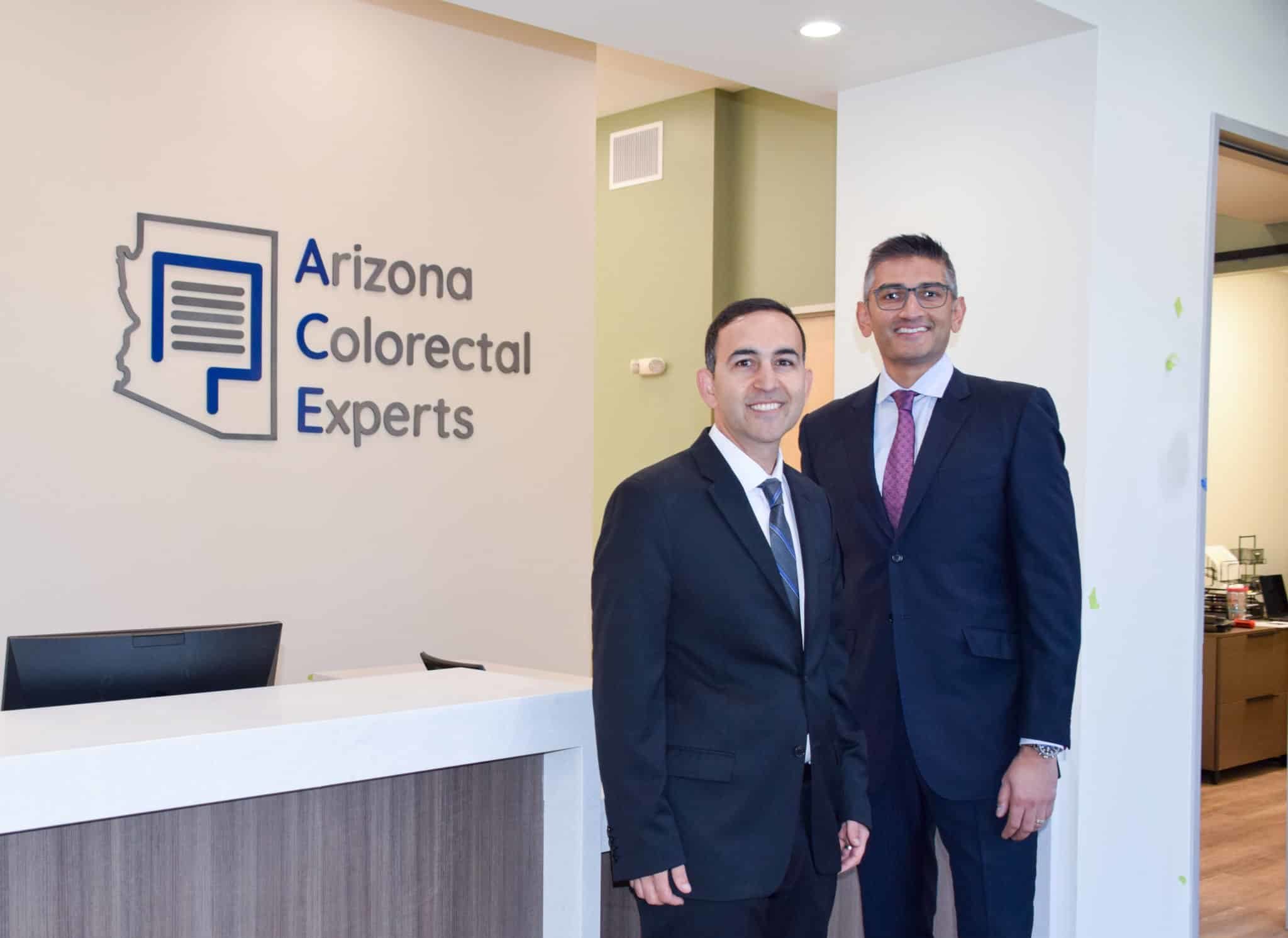Jump to Section
- What is Diverticular Disease?
- What are the Symptoms of Diverticular Disease?
- What Causes Diverticular Disease?
- Diverticular Disease FAQs
- What Are My Treatment Options for Diverticular Disease?
- Diverticular Disease Outlook and Steps to Take
- Schedule an Appointment
- Meet the Doctors
- Please Leave Us a Review!
- Contact Us
- Recent Blogs
Diverticular disease is relatively common, but it can be beneficial to get treatment from a colorectal expert to help manage your symptoms. At ACE Clinic, we can help you take steps to achieve relief and live a healthy and active lifestyle.
What is Diverticular Disease?
Diverticula is the name for an outpouching of the wall of the colon.
- Diverticulosis: This form of diverticular disease comes with no complications or symptoms. It merely means the presence of diverticula in the colon wall.
- Diverticulitis: This form of diverticular disease happens when diverticula become inflamed or infected. It can cause noticeable, severe symptoms and complications like abscess formation, bleeding, colonic stricture, or fistula formation.
Diverticulosis is very common, with rates increasing drastically as you age.
What are the Symptoms of Diverticular Disease?
Diverticulosis causes no symptoms and doesn’t usually require intervention. However, diverticulitis can cause noticeable and severe symptoms like abdominal cramping, bloating and fever. It’s important to work with a colorectal surgeon because symptoms of diverticulitis are similar to many other gastrointestinal conditions.
What Causes Diverticular Disease?
It’s thought that diverticular disease is caused by high pressure in the colon, which causes the walls to bulge outward. High pressure or strain on the colon can be caused by not eating enough fiber. It’s not well understood what causes diverticulitis, or infected diverticula.
Certain risk factors can make it more likely that you develop diverticular disease. These include age, eating a low-fiber diet or a lot of fat and red meat.
Diverticular Disease FAQs
What are the symptoms of diverticular disease?
What is the main cause of diverticulitis?
What foods trigger diverticulitis?
Can diverticulosis go away?
What is the best treatment for diverticulitis?
Can you prevent diverticulitis?
What are the risk factors for diverticulitis?
Does alcohol affect diverticulitis?
What Are My Treatment Options for Diverticular Disease?
Diverticulosis typically doesn’t need treatment. Diverticulitis is usually associated with symptoms and diagnosed through a process that might include a colonoscopy or CT scan. For mild diverticulitis, your colorectal expert may treat it with a course of antibiotics.
In more severe diverticulitis, your colorectal expert may recommend surgery. This is typically performed in cases of abscess formation, perforation, fistula, colonic stricture, or recurrent disease.
Diverticular Disease Outlook and Steps to Take
Surgery is very effective in treating chronic or complicated diverticulitis. Working with a colorectal surgeon and living a healthy lifestyle always helps patients recover well after surgery.
Schedule an Appointment
Diverticular disease is very treatable with the help of an experienced colorectal expert. To meet with our team and learn more, we invite you to contact our office by calling or filling out our online contact form.

Meet the Doctors
Drs. Hekmat Hakiman and Arpit Patel are leading colorectal surgeons in the greater Phoenix area. As part of our experienced team at ACE Clinic, they can provide exceptional care with a compassionate and friendly approach to colorectal health. Drs. Hakiman and Patel are dual board-certified in general surgery and colorectal surgery, and both completed their fellowship at Baylor University Medical Center in Dallas, TX before founding their physician-owned practice in Chandler, AZ. We hope you’ll feel exceptionally welcome during your time at Arizona Colorectal Experts and look forward to helping meet your health care needs.
Please Leave Us a Review!
We would love for you to take some time and leave a 5-star review and share your positive experience at Arizona Colorectal Experts.
Leave a ReviewContact Us
Please do not hesitate to call us at 602-844-5157 or fill out our online form if you have a question, or would like to schedule an appointment.








